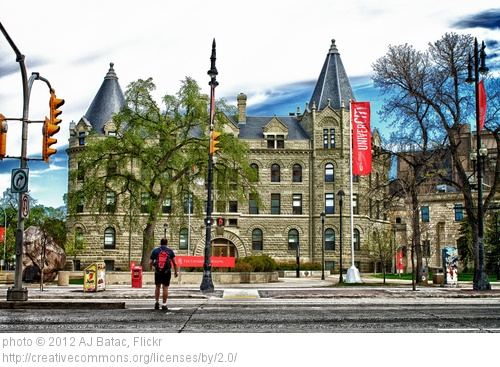In my last post, I discussed my experience at Bahcesehir University and gave some of my impressions about what drives students to study abroad. Working at BAU didn’t just give me a chance to observe students, though. It also allowed me to look at overseas university systems close up. I was able to see how their programming and administrative organization compare with older American schools, and how they differ. Below are four things that I saw overseas schools doing right, to keep themselves relevant and sustainable in a global education community.

1) Marketing a global university, not an international program: Viewers who click on BAU’s homepage might quickly notice three buttons. The first is the prominent link marked “Kampusum Dunya” --”World Campus,” leading straight to a map displaying the location of each of BAU’s school program and facility worldwide.
The second is a comprehensive web portal for international study at all of these locations. This “BAU International” site describes programming, admissions, student affairs, facilities, and other material throughout the school’s global system, including in its domestic Turkish campuses. In short, it places on its international page just about all of the information that most schools reserve for their main pages.
The third button translates all of this, give or take, into five languages --English, Turkish, Arabic, Russian, and German.
BAU’s marketing, and for that matter its programming, have integrated international services into a comprehensive global education model. In doing so, it offers students comprehensive and flexible international study, supports a seamless coordination between domestic and international student administration, and boosts its own presence and reputation across national borders.
2) Paying attention to cost: BAU’s tuition for 2012-2013 was approximately $10,000; it is a nonprofit organization (a “foundation” organization under Turkish legal terminology). For a private American nonprofit school, this would be close to astounding.
The school achieves these savings by foregoing some programming and facility offerings, especially in student services and extracurricular activities. There is no gym, and student organizations fund themselves by charging participation fees, rather than seeking support from a student union.
BAU also relies on some novel partnerships to help connect students to learning resources. The school has established a co-op program based on Northeastern University’s own groundbreaking model. Business and academic partners offer students practical education, but also hands-on access to labs, computer networks, and other infrastructure for experimentation and practice. The model helps BAU to more judiciously invest in its own infrastructure, especially concerning expensive science and research facilities.
3) Innovating where they can: Opportunities to experiment with academic programming are limited in Turkey, where YOK (remember them? See my last blog) controls curriculum and other matters across the nation. That said, BAU makes what progress it can. Its practical learning model, mentioned above, places students into working environments throughout Turkey. A dedicated International internships office provides opportunities in other countries.
Like Limkokwing University and other new intentionally global schools, BAU teaches and requires fluency in English as a common language. Classes in most departments are taught in English, and admitted students are given a proficiency test. Those who demonstrated insufficient command are diverted to a year of preparatory English language instruction.
As a new university in a developing Turkish education landscape, BAU has been able to build itself as a global institution from the ground up. It’s taken full advantage of this opportunity for the most part. Its programming, marketing, and other operations offer many positive lessons on planning successful international engagement.
Brendan O’Brine has been working in college education since 2006. He holds a law degree from the University of California and recently completed his Master of Education courses at Northeastern University.

